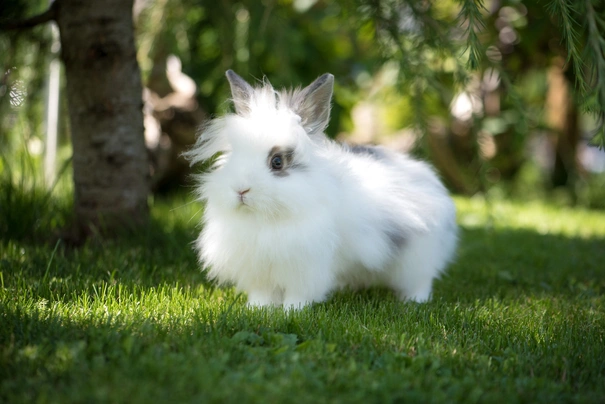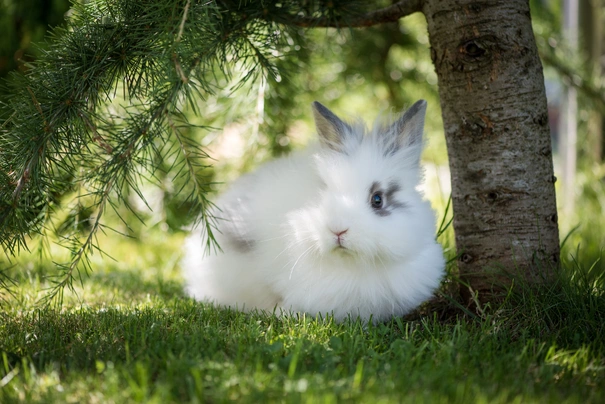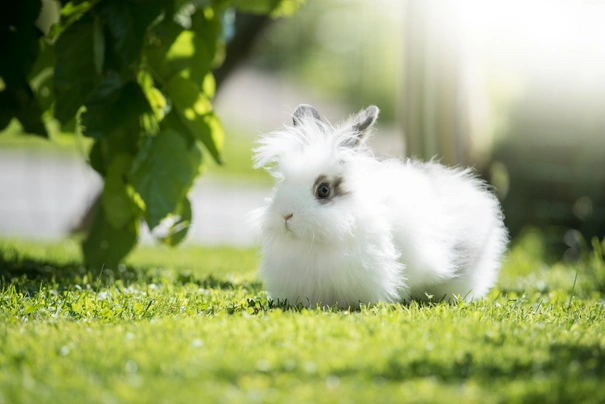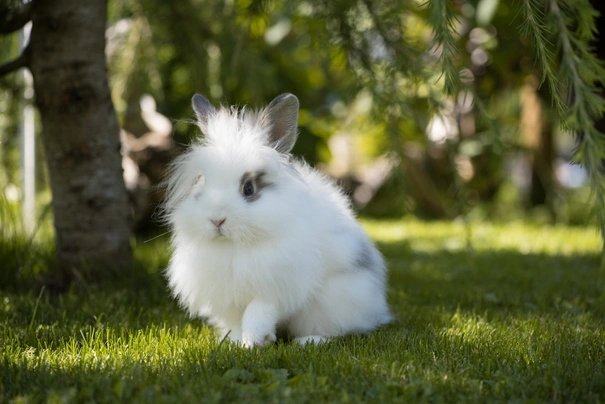Angora
Introduction of the Angora
The Angora is a long-haired rabbit originating in Turkey and bred for its fur, which is spun and used like wool. It’s one of the oldest breeds of rabbit and can trace its ancestry back to Ankara, once known as Angora, alongside the Angora cat and Angora goat.
The Angora rabbit was popular as a pet in the French court of the 18th Century and had made its way to other parts of the Continent by the end of the Century. These days they are primarily kept for their wool as they can be a difficult animal to keep as a pet.
History of the Angora
It’s been suggested that the first Angoras were first seen by Westerners in the 18th Century, when sailors arriving in the port of Angora admired the woollen shawls worn by the Turkish women. The ladies were making their shawls from the wool of their goats and rabbits and the sailors were said to have taken examples back home with them to France.
There are those that believe that the Angora’s history stretches much further back than this though; and that nomadic tribes in the Carpathian Mountains of Eastern Europe bred Angora goats and rabbits so they always had a ready supply of wool. Some experts even think that the Romans could have kept Angoras as far back as 100BC.
While fanciers may disagree on some of these suggestions, what is true is that many people, from the 18th Century onwards recognised that the breed could provide the wool to make lightweight, yet very warm woollen fabric and the breed became increasingly popular as a wool animal.
France became the first country to exploit the Angora for its wool and spin yarn commercially and the country remained at the forefront of wool production until the middle of the 20th Century.
Appearance of the Angora
- Main colourways: red-eyed white, agouti, seal point, self, broken and shaded
- Average weight: 2 – 9lb (depending on type)
Angora’s are kept mainly as wool animals because of their long, silky soft fur. The hairs are only 11 microns in diameter which means the wool of an Angora rabbit is finer than Cashmere. They endear themselves to fanciers not just because they boast an amazing coat, but because they also have a slightly comical appearance and have been described as ‘a furball with a face’.
The breed should be groomed daily to prevent matting and wool block – a potentially serious condition caused by a blockage in the gut created by swallowed fur. The Angora should be shorn a few times each year to encourage new hair growth and keep the coat and skin healthy. Despite it looking like a chore, grooming a good example of an Angora should be relatively easy. If however, he has fur that’s the same texture as cotton wool, he will be far more difficult to groom and will be difficult to keep mat free.
The typical Angora is quite small and has a ‘rounded’ appearance – hence the ‘furball’ comparison. The English Angora has tufts on the end of the ears and on the feet and all have very powerful hind legs which are much longer than the front.
Temperament of the Angora
The Angora Rabbit is a gentle, loveable and intelligent creature. They will love to play and providing they’ve been allowed to get used to humans from a young age, they will delight in games with their owner. Remember however, that rabbits are prey animals and if they are handled roughly or become fearful they can struggle and become aggressive. Being kicked by a frightened rabbit is not fun!
Give him some cat toys – particularly ones that make a noise, and he will enjoy himself for hours. He will enjoy it even more if you play with them too. The Angora is one of the more intelligent breeds of rabbit and can be trained to use a litter tray and to come to his name. He will enjoy sitting next to you for a snuggle, but only experienced handlers should pick up a rabbit. They are delicate creatures and if they aren’t picked up properly their spines can be easily damaged.
Providing he has been given ample opportunity to get to know them, he will get on with other pets and will make a fun-loving, affectionate companion.
Health of the Angora
Wool block is perhaps the most common ailment in the Angora Rabbit. When they groom themselves they always ingest a small amount of hair. Normally this passes safely through the digestive tract, but sometimes the hair can accumulate and form a hairball. Other animals such as cats can expel a hairball by vomiting, but rabbits lack the ability to be sick.
During a moult the rabbit can ingest larger-than-normal amounts of hair and this is therefore the time when wool block is likely to develop. If left untreated, wool block can clog up the digestive system completely and can be fatal. Symptoms to look out for in your Angora include lack of appetite, smaller, less frequent stools or droppings that are strung together by bits of wool. Lethargy can also be displayed and sometimes the hairballs get so large you can actually feel them in the animal’s stomach. If you suspect wool block in your rabbit you must seek veterinary advice.
All rabbits should be treated for fleas, ticks and worms and should also be vaccinated against Myxomatosis and Viral Haemorrhagic Disease – both highly infectious conditions that can be fatal. Female animals should also be spayed to prevent uterine cancer, which is common in rabbits. Your pet should also be checked regularly to ensure he is grooming himself correctly. If he isn’t consider whether his weight may be preventing him from cleaning as he normally would. Any soiled areas of fur should be cleaned or flystrike may become a problem.
His teeth should also be checked regularly as rabbit teeth grow continually and can easily overgrow unless they are kept worn by a good diet.
Caring for the Angora
Is your rabbit going to live in a hutch or in the house with you? It’s important you decide this before you bring your new pet home. If he’s going to live in the house all important belongings should be well out of his reach. This includes clothes, shoes, books, toys cables and wires and anything else you don’t want chewing. He should be given items he can chew such as gnaw toys and cardboard tubes to keep him occupied. He should also be taught to use a litter tray and provided with a quiet place – a dog crate is ideal – where he can retire for a snooze or to get away from it all.
All rabbits should have access to outdoor space, either in a run or in a secure area of garden. If he’s going to live in a hutch it should be completely weatherproof but well ventilated, with a mesh front. A cover should be placed over the mesh in very bad weather, and the mesh should be fine enough to prevent feet or heads getting through. The hutch should be big enough for him to hop around and stand on his hind legs and should be placed out of direct sun or draughts. It must be cleaned out thoroughly once a week and droppings should be removed daily. If the hutch can be placed in well-lit, well-ventilated shed this is ideal.
He should be fed the best quality hay and pellets you can afford and he should also be offered fibrous green vegetables such as cabbage, kale, nettles and dandelions. Manufacturer’s guidelines should be followed with pellets in order to avoid excessive weight gain.

Beautiful Full Faced Angoras
£250
Beautiful Angora Rabbits For Sale
£85
🐰 English Angora Lionhead Babies (Liongoras)
£85



